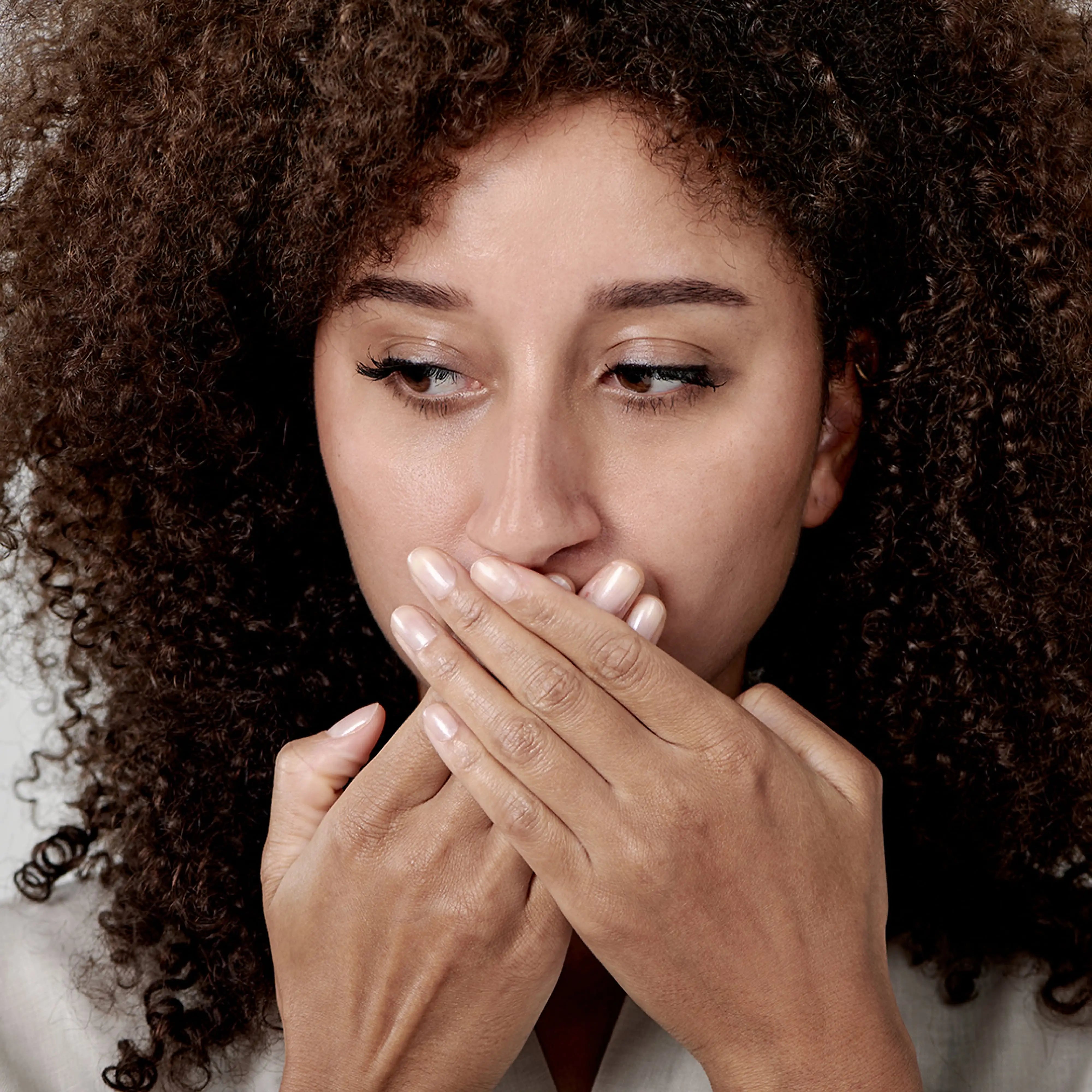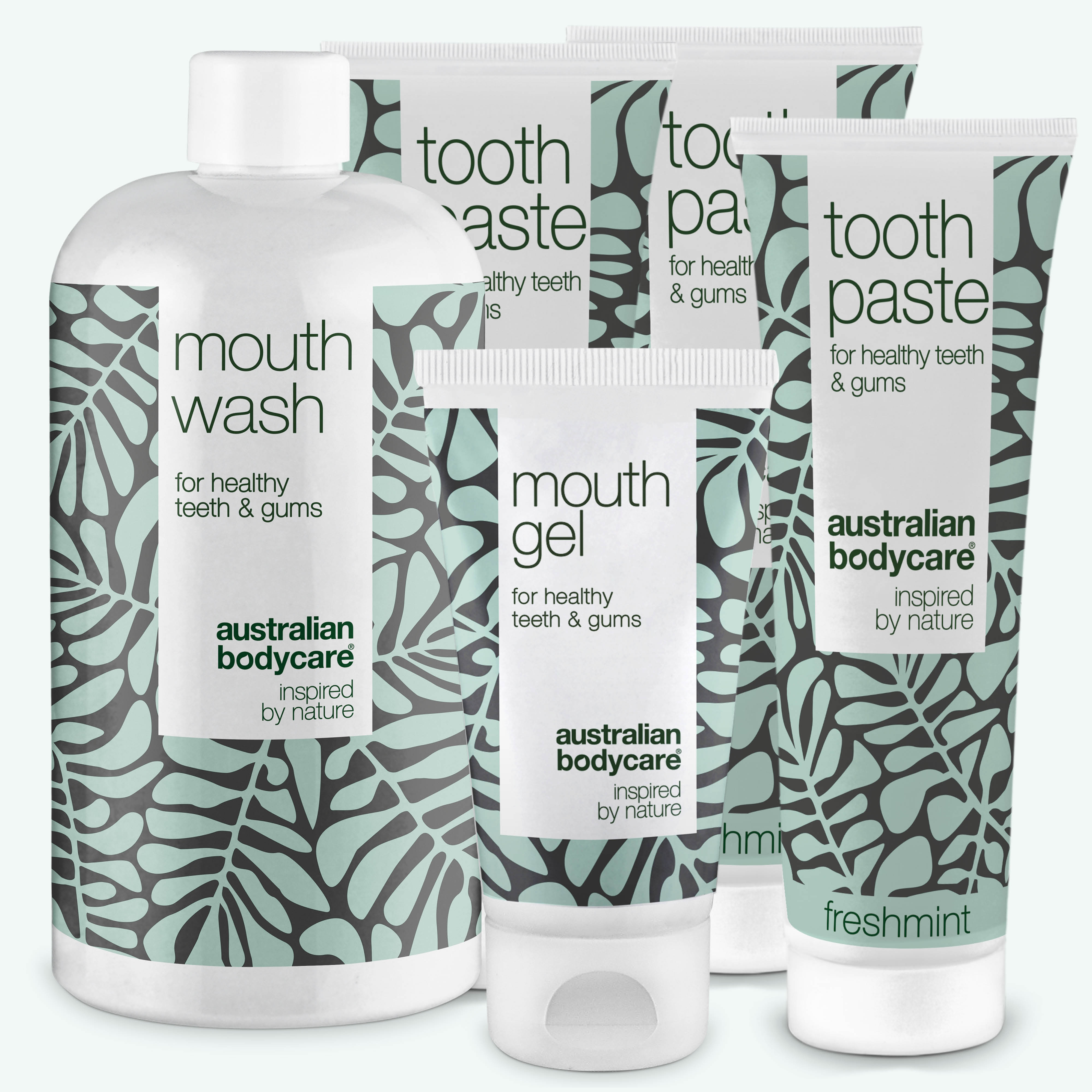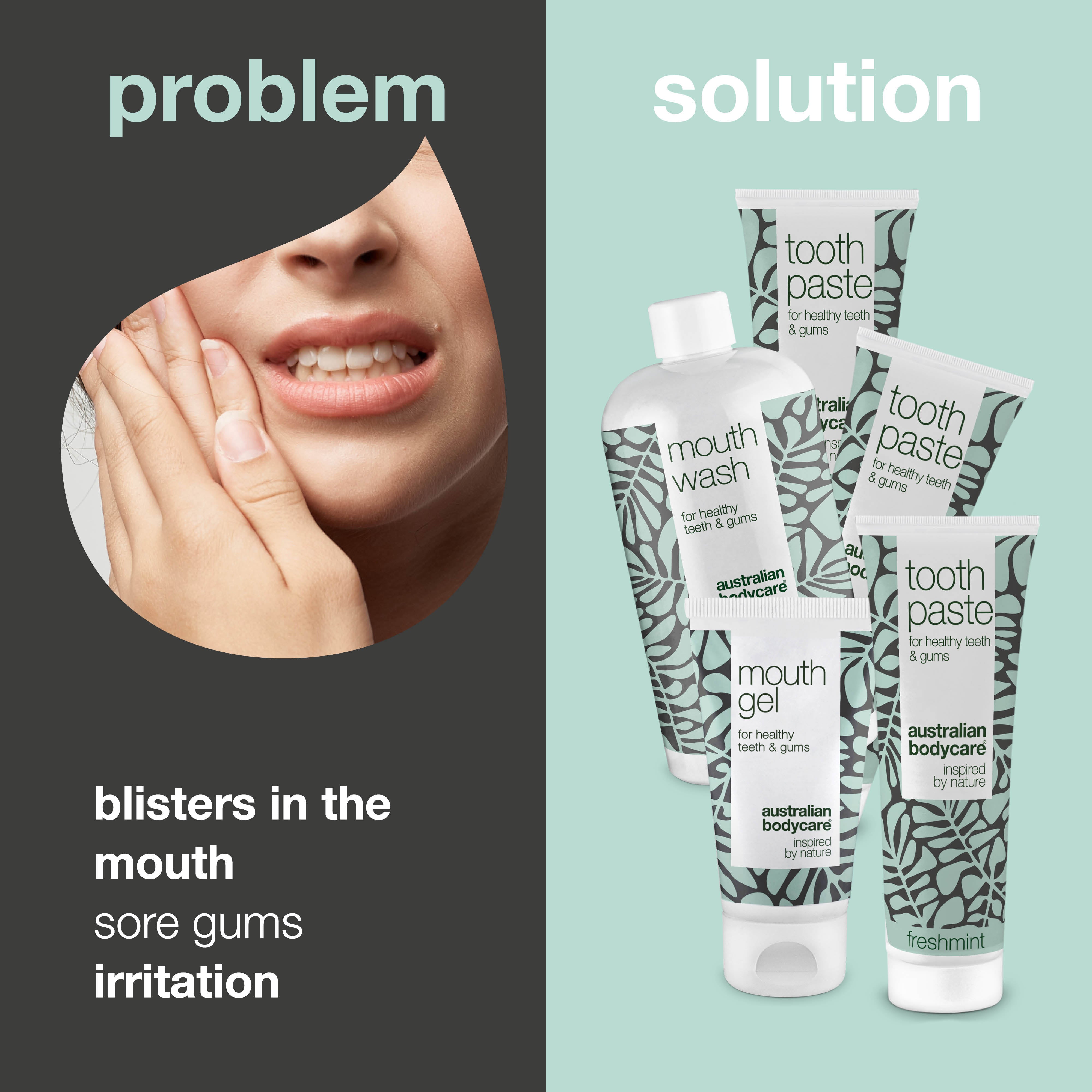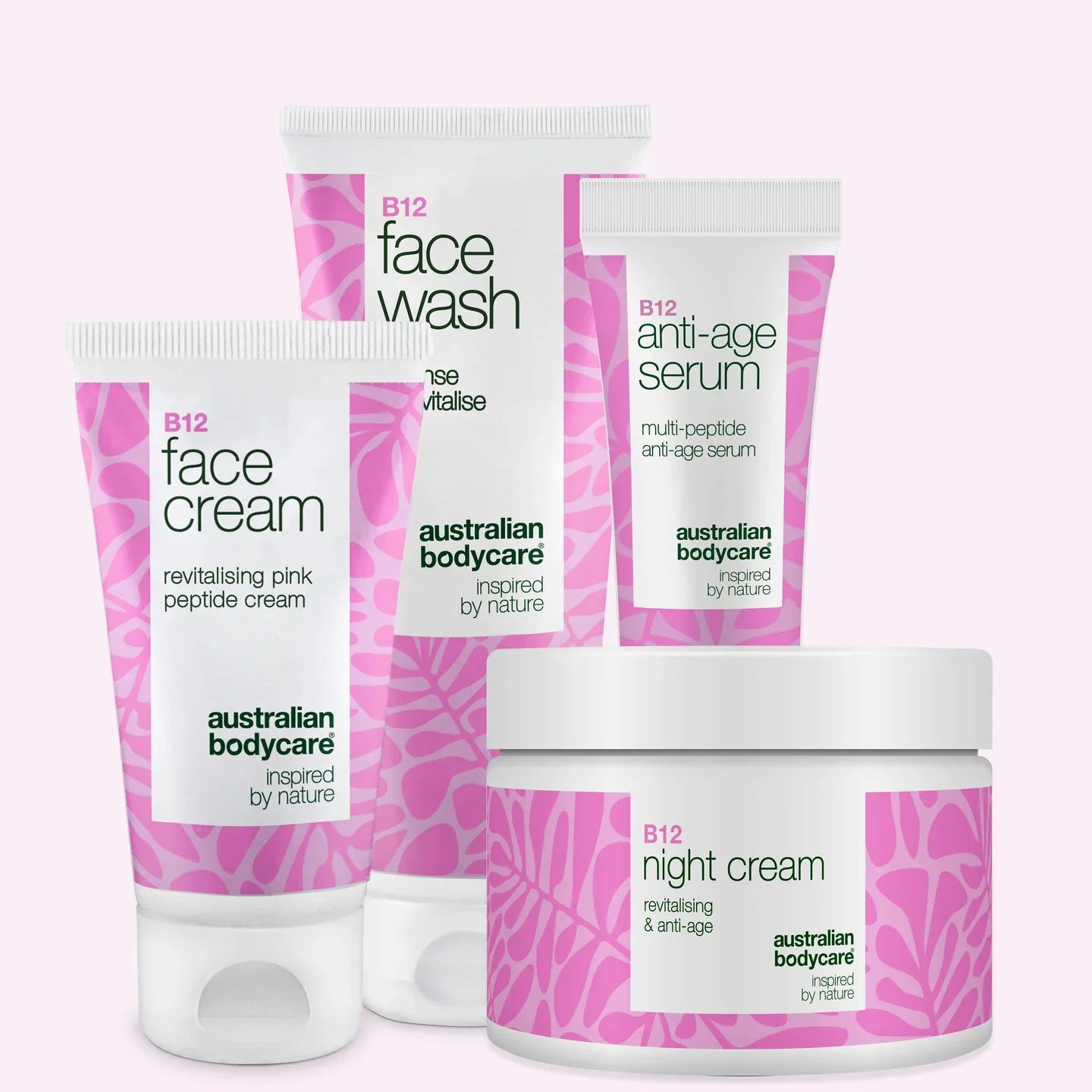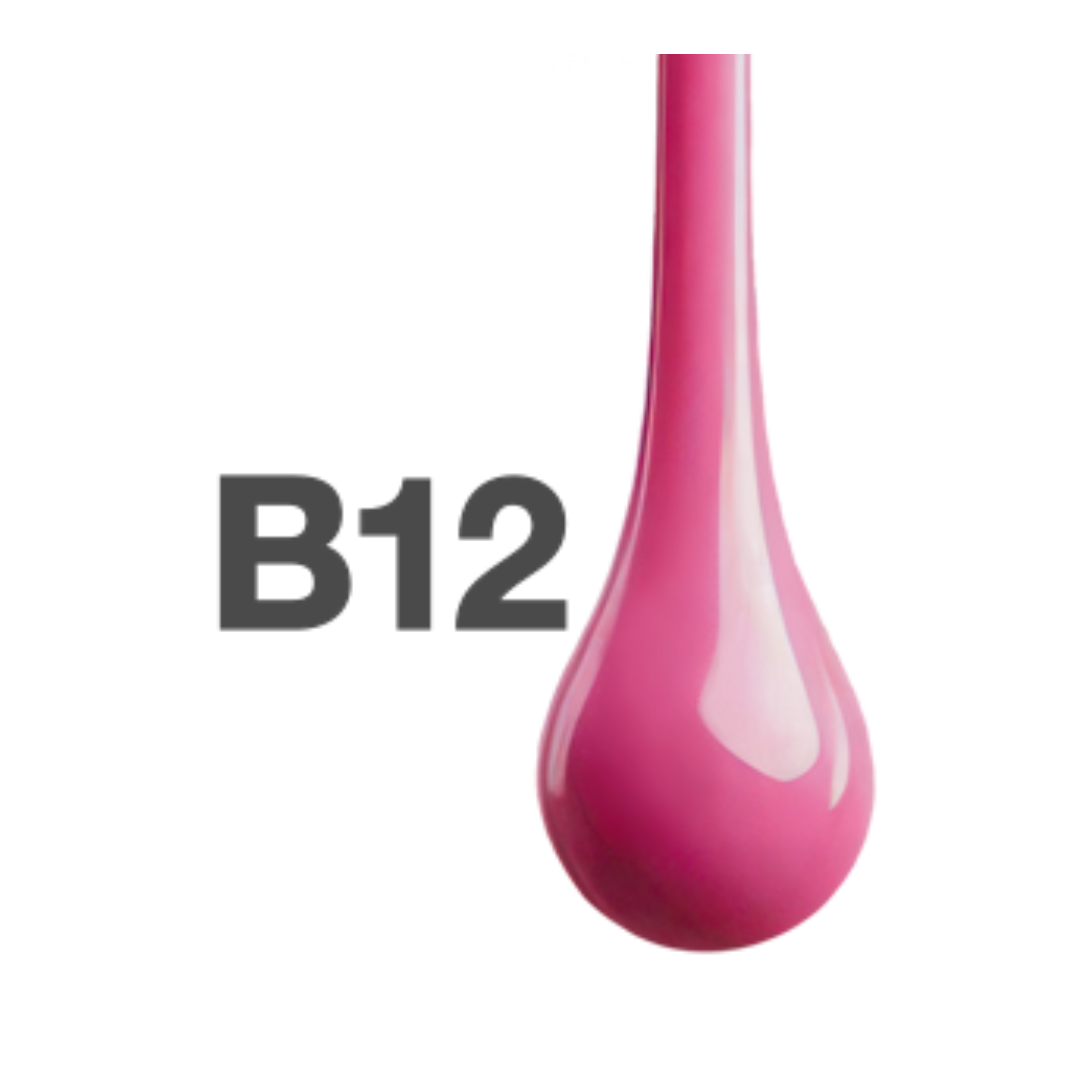Blisters in the mouth – How to treat irritating canker sores
Blisters in the mouth are those small irritating and painful blisters or sores which many of us occasionally develop in the mouth, on the tongue or on the inner side of the lips. Mouth blisters are also known as canker sores or aphthae. They are harmless, but cause discomfort. Fortunately, good treatments are available.
Table of contents
Treating blisters in the mouth
The best way, of course, is to prevent blisters in the mouth if you can. To do this, you need to know what triggers new attacks, but that is not always straightforward. If you have a blister in the mouth (nevertheless), it is also good to know how to treat them and get rid of them as fast as possible.
So the question is: How do you deal with blisters in the mouth? When you have a blister in your mouth, you want to get rid of it as soon as you can – and stop or reduce the pain and discomfort as much as possible until the blisters are completely gone. Thus it is a question of both healing and soothing the pain.
Five ways of treating blisters in the mouth:
There are several different ways of dealing with blisters in the mouth:
- You can use a mouth wash. With mouth washes containing chlorhexidine, however, there is the considerable disadvantage that they discolour the teeth if used for long periods.
- You can use a salve with local anaesthetic. It relieves the pain, but does not promote healing of the blisters.
- You can use antibiotics in tablet form, dissolved in water, as a mouthwash. However, antibiotics require a prescription from your doctor or dentist.
- You can drink cold drinks and apply ice to the area, but this only soothes for a short time, and does not heal the blisters.
- You can use Tea Tree Oil, which is a natural remedy known for its beneficial effects against irritation, stinging, and many other problems caused by bacteria among other things. Use a Mouth gel with Tea Tree Oil. Press a little gel onto your finger, and apply it directly to the blister 1-4 times a day. It does not taste very good, but don’t worry. The taste soon goes away, and after a short time the oil will soothe the blister.
It is largely a matter of choice whether you prefer to wait for your blister to clear up by itself, or whether you prefer treatment with medicinal products and chemistry, or whether you would rather use natural remedies to treat your blisters. It is always a good idea to see your doctor in connection with treatment.
What are blisters in the mouth?
Blisters in the mouth are small, painful spots or sores inside the mouth or cheek, on the tongue or on the inner side of the lips. They are white or yellowish, and typically surrounded by a slightly swollen ring of red.
Many of us have had a blister in the mouth, perhaps several times. Luckily blisters are not infectious or serious, and sooner or later they will clear up by themselves. But they are painful and uncomfortable while they are there. Many people feel them as a burning sensation on the spot. Depending on where in the mouth they are, and how large, it can be extra uncomfortable to eat or talk when you have a blister in your mouth.
Blisters in the mouth should not be confused with cold sores, which also sting and cause discomfort. One difference is that cold sores are caused by an infections virus, while blisters are not. While blisters form inside the mouth, cold sores form outside the mouth and on the lips.
Blisters in the mouth should not be confused with stomatitis. Blisters or sores in the mouth also appear with stomatitis, but the cause is not the same.
Blisters in the mouth are harmless, and will disappear by themselves. You can treat your blisters, however, to make them less painful or uncomfortable, and to get rid of them faster. Nevertheless, if they have not gone after a week or two, you should let your doctor or dentist look at them. In rare cases, blisters in the mouth may be a symptom of other diseases or conditions.
Everyone can get blisters in the mouth
Blisters in the mouth, also known as canker sores or aphthae, are a very common mouth complaint. Doctors, and especially dentists, often come across them.
Everyone can get blisters in the mouth, both children and adults. However, they often affect women. It is believed that around 20 % of the population suffers from blisters in the mouth periodically. Luckily most only have blisters on rare occasions, but some people are plagued by them almost all the time.
The tendency to develop blisters in the mouth is inherited. Additionally, stress, certain foods and allergies may also be triggering factors. However, it appears that smokers suffer from blisters in the mouth slightly less frequently than non-smokers.
Symptoms: What do blisters in the mouth look like?
- Size:Blisters are quite small round ulcers or spots. They are typically 5-10 mm in diameter.
- Colour:Blisters may be white or yellowish, and will often be surrounded by a red edge that may be slightly swollen.
- Pain:Blisters are painful and troublesome, and may hurt even more when you speak or eat.
- Position in the mouth:Blisters form inside the mouth – in the oral cavity, inside the cheeks, on the inner side of the lips and/or on the tongue.
- Frequency:Some people often have blisters in the mouth, while, fortunately, most only rarely suffer from them. About 20 % of the population have experienced blisters in the mouth.
- Duration:Some people’s blisters heal after a couple of days, while for others an outbreak may last for as long as a couple of weeks.
Why do I get blisters in the mouth?
Most people have suffered at least once from mouth blisters. For some, they are unfortunately a recurrent and uncomfortable problem.
It is not known precisely why people get blisters in the mouth – or why some suffer more from them than others. They are known to be hereditary, however, and a number of factors are known that may contribute to triggering an outbreak.
Typical causes of blisters in the mouth
- Damage to the oral cavity after biting oneself in the tongue or cheek, pricking with a fork or scrubbing a little too hard with a toothbrush.
- Stress affects the immune response, and a reduced immune response may make you more likely to get blisters in the mouth.
- Certain foods, such as strongly spicy dishes, coffee, chocolate, nuts, tomatoes, strawberries or cheese can trigger blisters in some people.
- Hormonal changes, for instance during menstruation or pregnancy, may trigger blisters in the mouth in some women – or mean that they have fewer blisters than usual.
- Vitamin or iron deficiency may be a cause of blisters in the mouth.
- Some medications such as pain killers containing Ibuprofen or medication for high blood pressure may trigger blisters in some people.
- Toothpaste containing sodium lauryl sulphate may increase a tendency to blisters in the mouth in some people.
- Braces, fillings or prostheses that do not fit correctly and therefore chafe can cause blisters.
Thus there are many possible causes of blisters in the mouth. If you often have outbreaks of blisters in the mouth, it might be a good idea to talk to your doctor or dentist about it. You may suffer from vitamin deficiency or anaemia, and then the problem can be solved with a vitamin or iron supplement. If you suspect that your blisters come when you are under stress, it might be a good reason for doing something to avoid whatever causes you stress. If you are not able to find an obvious cause of outbreaks of blisters in the mouth, you can always try going over to toothpaste without sodium lauryl sulphate, to see whether it helps.
Even though blisters in the mouth are a harmless condition, they are troublesome and painful, so there are plenty of reasons to try and avoid outbreaks if you can.
Children with blisters in the mouth
Both children and adults can get blisters in the mouth, so if you discover that your baby has one, it is good to know that it is quite harmless. It can be painful and uncomfortable for the baby, all the same, and should therefore be treated.
The causes of blisters in the mouth in children are as a rule the same as for adults (see above). So a single blister is probably just that: a single blister, while it may be a sign of something else if there are several. If this is the case, you should let the doctor look at it, as it may be a sign of hand, foot and mouth disease, stomatitis, or maybe something else. It can be difficult do distinguish by yourself, and it is therefore a good idea to consult a doctor. The same applies if the blister or blisters have not disappeared after a week or so (with or without treatment).
FAQ about blisters in the mouth
Why do I get blisters in the mouth?
There may be several different reasons why people get blisters in the mouth, such as pricking oneself with a fork, biting one’s tongue or cheek, scrubbing too vigorously when brushing teeth, or being under pressure, vitamin deficiency or anaemia, eating the wrong foods, chafing of a brace, filling or denture that does not fit correctly, or using toothpaste containing the surfactant sodium lauryl sulphate.
How do you remove blisters in the mouth?
Blisters in the mouth can be reduced and the pain eased with various remedies such as mouthwash or ointment. Remedies containing Australian Tea Tree Oil are also known for their effect on blisters in the mouth.
What can you do about blisters in the mouth?
Blisters in the mouth are painful and uncomfortable, but fortunately, you can do quite a lot yourself to get rid of them. Among other things, you can use mouthwash or ointment, and also remedies containing Australian Tea Tree Oil, which is known for its effects on blisters in the mouth. To avoid blisters in the mouth, you can try to strengthen your immune response, avoid stress, get enough vitamins, and replace your toothpaste with one that does not contain the surfactant sodium lauryl sulphate, which is known to trigger blisters in the mouth in some people.
What causes blisters in the mouth?
The precise causes of blisters in the mouth are not known, but it is known that triggering factors may be stress, vitamin deficiency or anaemia, certain foods, some types of medication, and hormonal changes. Besides these, you may also get blisters in the mouth after pricking yourself in the mouth with a fork, biting your tongue or cheek, scrubbing your teeth too vigorously, or if you have a brace, a filling or a denture that does not fit correctly. Some people develop blisters from using toothpaste with the foaming agent sodium lauryl sulphate. The tendency to develop blisters in the mouth is also hereditary.
Who can get blisters in the mouth?
Everyone can get blisters in the mouth, both children and adults. It is believed that around 20 % of the population suffers from blisters in the mouth periodically. Some only suffer from them on a single occasion, while others have them regularly, and a few are troubled constantly by blisters in the mouth. The tendency to develop blisters in the mouth is hereditary, so if both parents suffer from blisters in the mouth, their children may get blisters too.
What do blisters in the mouth look like?
Blisters in the mouth are small round spots or ulcers, which are white or yellowish, and surrounded by a reddish ring. A blister is typically 5-10 mm in diameter. Blisters in the mouth are painful and uncomfortable. Blisters always form inside the mouth – in the oral cavity, inside the cheeks, on the inner side of the lips and/or on the tongue.

